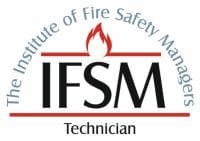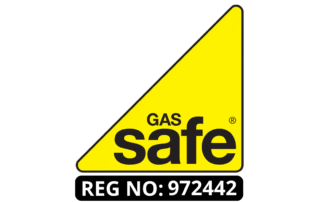
As a landlord, ensuring the safety of your tenants is not just a moral obligation but a legal requirement. A Gas Safety Certificate (GSC) is essential for compliance and protecting your investment. By obtaining this certificate annually from a qualified engineer, you can spot potential hazards and avoid severe consequences. Ignoring this responsibility can lead to fines and legal issues. But what does the process of securing a GSC entail, and how can it benefit your property?
Table of Contents
Key Takeaways
- A Gas Safety Certificate ensures compliance with legal requirements, protecting landlords from hefty fines and potential imprisonment.
- It verifies that gas appliances are safe, safeguarding tenants from gas-related hazards and ensuring their well-being.
- Regular inspections demonstrate a landlord’s commitment to tenant safety, enhancing tenant satisfaction and encouraging longer lease durations.
- Qualified gas engineers identify potential hazards, ensuring timely repairs and maintenance to prevent dangerous situations.
- Failing to obtain a GSC can void insurance coverage, exposing landlords to significant financial risks and civil liability claims.
Understanding the Legal Requirements for Gas Safety Certificates
If you’re a landlord, understanding the legal requirements for gas safety certificates is essential for your responsibilities.
In the UK, you’re legally obligated to guarantee that all gas appliances and installations in your rental properties are safe. This means obtaining a Gas Safety Certificate (GSC) annually from a registered Gas Safe engineer.
The GSC confirms that your gas appliances have been inspected and deemed safe for use. You must provide tenants with a copy of this certificate within 28 days of the inspection.
Failure to comply can result in hefty fines or even imprisonment. Staying informed about these regulations not only safeguards your tenants but also protects your investment and reputation as a responsible landlord.
The Importance of Regular Gas Safety Inspections
Regular gas safety inspections are essential for ensuring the safety of your rental properties and the well-being of your tenants. These inspections not only comply with legal requirements but also help you identify potential hazards before they become serious issues.
By conducting these checks annually, you demonstrate your commitment to tenant safety and protect your investment. Trained professionals can uncover gas leaks, faulty appliances, or inadequate ventilation, allowing you to address problems proactively.

Additionally, regular inspections can enhance tenant satisfaction, leading to longer lease durations and fewer vacancies. Ultimately, prioritizing gas safety inspections reflects your responsibility as a landlord and reinforces a reliable reputation in the rental market.
Don’t overlook this critical aspect of property management.
Protecting Tenants From Gas-Related Hazards
Guaranteeing your tenants are protected from gas-related hazards is a fundamental responsibility for landlords. Gas appliances, if improperly maintained, can lead to serious health risks, including carbon monoxide poisoning. To safeguard your tenants, conduct regular inspections and maintain all gas appliances diligently.
| Hazard Type | Prevention Measures |
| Carbon Monoxide | Install detectors, check vents |
| Gas Leaks | Regularly inspect pipes |
| Appliance Malfunction | Schedule routine servicing |
| Poor Ventilation | Guarantee proper airflow |
| Inadequate Training | Educate tenants on safety |
The Role of Qualified Gas Engineers
While you may be diligent in maintaining your properties, the expertise of qualified gas engineers is essential for guaranteeing safety and compliance with regulations.
These professionals play a significant role in the gas safety landscape, providing invaluable services that safeguard both your tenants and your investment.
Here’s what qualified gas engineers bring to the table:
- Thorough Inspections: They conduct detailed assessments of gas appliances, identifying potential hazards you might overlook.
- Regulatory Compliance: Engineers confirm that your property meets all legal requirements, reducing the risk of penalties.
- Expert Repairs and Maintenance: Their specialized skills allow for effective servicing and repair of gas systems, maintaining peak performance.
Investing in qualified gas engineers isn’t just a smart choice; it’s a necessity for responsible landlords.
Consequences of Failing to Obtain a Gas Safety Certificate
Neglecting to obtain a gas safety certificate can lead to serious repercussions for landlords.
First, you risk hefty fines and potential legal action if you fail to comply with gas safety regulations. This non-compliance can also result in prosecution, damaging your reputation and financial standing.
More importantly, without a gas safety certificate, you’re endangering your tenants’ lives. Gas leaks or faulty appliances can lead to carbon monoxide poisoning, fires, or explosions. Such incidents may lead to severe injuries or fatalities, resulting in civil liability claims against you.
Additionally, your insurance coverage might be voided, leaving you financially exposed.
Ultimately, the absence of a gas safety certificate undermines your responsibilities and jeopardizes both your investment and tenant safety.
Enhancing Property Value and Appeal
Obtaining a gas safety certificate not only fulfills legal obligations but also greatly enhances your property’s value and appeal.
By showcasing your commitment to safety and compliance, you attract more potential tenants and buyers. Here are key benefits:
- Increased Marketability: A gas safety certificate signals professionalism, drawing in quality tenants who prioritize safety.
- Higher Rental Yields: Properties with verified safety measures often command higher rents, boosting your return on investment.
- Reduced Liability Risks: Ensuring safety mitigates the risk of accidents, protecting your assets and reputation.
In a competitive market, having a gas safety certificate can be a distinguishing factor, making your property more attractive and ultimately more profitable.
Don’t underestimate its impact on your investment.
Building Trust With Your Tenants
Building trust with your tenants is essential for fostering a positive rental experience and ensuring long-term occupancy. To achieve this, prioritize open communication. When tenants feel they can voice concerns, it builds a strong rapport. Regularly check in on their satisfaction with the property—this shows you care.
Additionally, maintaining transparency about costs and property rules reinforces trust. When you’re upfront, tenants are more likely to respect agreements.

Implementing essential safety measures, such as obtaining a gas safety certificate, not only safeguards tenants but also demonstrates your commitment to their well-being.
Ultimately, a trustworthy relationship leads to lower turnover rates and a more harmonious living environment. Invest in trust; it pays dividends in tenant loyalty and satisfaction.
The Process of Obtaining a Gas Safety Certificate
When it comes to guaranteeing the safety of your rental property, securing a gas safety certificate is an essential step. The process is straightforward, and understanding it can save you time and hassle.
Here’s how to obtain your certificate:
- Hire a Registered Gas Engineer: Verify they’re qualified to carry out the necessary checks.
- Schedule an Inspection: The engineer will inspect all gas appliances, pipes, and flues within your property.
- Receive Your Certificate: If everything passes, you’ll receive a gas safety certificate, which is valid for 12 months.
Make certain to keep records and renew your certificate annually. This not only protects your tenants but also keeps you compliant with legal requirements.
Being proactive in this process demonstrates your commitment to safety and professionalism.
Frequently Asked Questions
How Much Does a Gas Safety Certificate Cost?
A gas safety certificate typically costs between £60 and £120, depending on your location and the complexity of the job. It’s essential to shop around for certified professionals to guarantee you get quality service.
How Often Do I Need to Renew the Certificate?
You need to renew your gas safety certificate annually. It’s vital to schedule inspections consistently to guarantee your property remains compliant and safe, protecting both your tenants and your responsibilities as a landlord.
Can I Perform the Inspection Myself?
You can’t perform the inspection yourself. Only a qualified gas engineer can conduct these assessments, ensuring safety and compliance with regulations. Trying to do it alone could lead to legal issues and unsafe conditions.
What Happens if My Tenant Refuses Access for Inspection?
If your tenant refuses access for inspection, you should communicate the importance of safety and legal obligations. Document the refusal and consider legal advice to guarantee compliance with regulations while maintaining good tenant relations.
Are There Penalties for Late Certification?
Yes, there are penalties for late certification. You could face fines, legal action, or difficulties renting your property. Staying compliant with gas safety regulations guarantees your tenants’ safety and protects your investment. Don’t delay certification.
Conclusion
In summary, securing a Gas Safety Certificate is essential for every landlord. It guarantees compliance with legal obligations, protects your tenants from potential hazards, and enhances your property’s value. By working with qualified gas engineers, you not only safeguard your investment but also build trust with your tenants. Don’t risk hefty fines or legal troubles—make obtaining a GSC an annual priority to maintain safety and peace of mind in your rental property.








